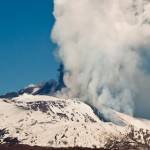Let’s be honest: a lot of people have a certain thought in their mind when then they hear about Africa. It’s either something that has to do with terrorism or something that is about the variety of animals that live there.
If you’re a traveler who enjoys going to rarely chosen destination places, Kenya may be the country you’re looking for. Whether you want to adventure yourself in the wildlife or just to learn about the culture, it could be a life-changing experience.
However, many people would try to advise you against this trip to Kenya. They want you to be safe and would rather have you send pictures from the Colosseum in Rome, Italy again. For that reason, it’s essential to know the safety level of this country before the plane takes off. This Kenya safety guide gives you some Kenya safety travel tips to consider before your trip.
Highest Risks You Expose Yourself to When Visiting Kenya
Overall Risks in Kenya: MEDIUM
Usually, tourists visit this country without any major incidents. So, the country is not the big bad monster that people paint it to be. However, things are not always sweet either. Whereas the authorities try to keep things at peace, unwanted situations could always occur.
Kenya is not the safest country out there, but that doesn’t mean that something is always about to happen. Basically, there are certain areas where traveling is advised against because of the threat. Thankfully, the safari destinations in the national parks, wildlife, and reserves are not advised against.
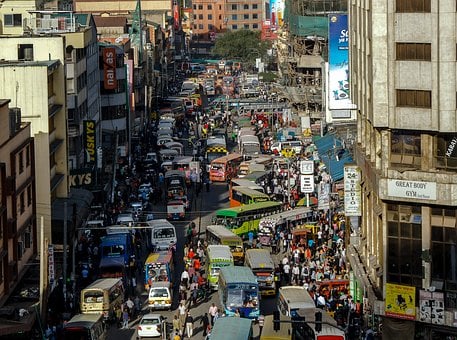
The terrorism threat exists, and it comes from extremists who are linked to the Al Shabaab group. For the most part, the attacks are carried out as a comeback to Kenya’s military intervention in Somalia. There have been attacks in many areas that are close to the Somali border in recent years.
Additionally, the attacks could also happen in places that are frequented by tourists, like bars, hotels, nightclubs, and restaurants. Even shopping centers, buses, and trains could become a target for unscrupulous terrorists. Mosques and churches could easily become attack places as well.
Moreover, there could be protests taking place in Kenya. Some of these manifestations have turned violent. Although the situation has calmed, there is the possibility of future protests.
Occasionally, there could be incidents of carjackings, muggings, or armed robbery. Violent crime usually happens in large cities, and this is why tourists should be vigilant.
Kenya is not free from piracy either. In the Indian Ocean and the Gulf of Aden, there is a threat of piracy.
Pickpocketing and Theft Risks in Kenya: MEDIUM
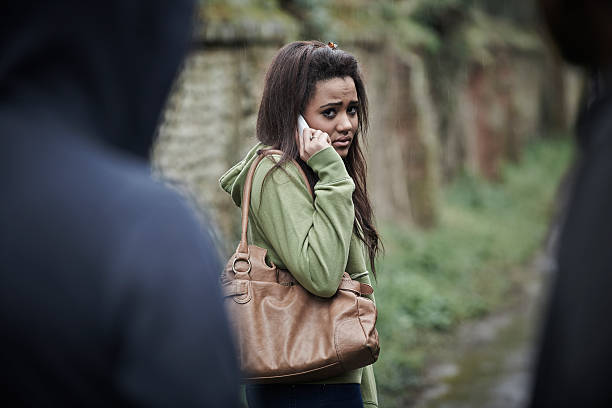
Pickpocketing and theft are always bound to happen, especially if you look too wealthy or it’s too obvious that you are a tourist. In rail stations, bus stations, and airports, there is the risk of bag snatching.
In big cities like Mombasa and Nairobi, theft and muggings are quite regular. While foreigners are usually not targeted, it’s not out of the equation. There have been cases when foreigners were victims of violent crime and have died as a result.
Pickpocketing could also happen in crowded areas if you’re not paying attention to the people who surround you. Thieves are looking for the right moment to strike, and if your valuables are visible, you’re at risk of losing them for good.
- How to avoid pickpocketing and theft in Kenya?
Before heading to town, you should take some precautions to ensure you won’t become a theft victim. Make sure you keep your valuables away from the eye, somewhere they could be kept and protected. If you don’t want to chase thieves on the street, keep your bag in front of you and hold it tight.
Never let your guard down, and in case something happens and you’re a victim, don’t resist, as you don’t want it to end in a tragedy. Follow the security advice that your employer or hosts give you.
Try not to walk alone on empty beaches or in isolated areas, especially during the night. If you’re alone, you may be considered harmless by potential attackers. Ensure you don’t carry around anything that’s too expensive, like jewelry. Don’t walk around carrying huge amounts of money either.
Moreover, you should be aware of the fact that there could be thieves posing as private Security Guards or police officers. Also, you should never accept any drink or food offered by strangers, as it could have drugs in it.
Scam Risk in Kenya: MEDIUM
Is Kenya safe to visit when it comes to scams? Well, you’re about to find out.
Scams are possible anywhere, not only when you’re going to a foreign place. However, you may be at higher risk if you are an obvious disoriented foreigner. There are multiple scams that could take place on the street.
For example, you may be approached by someone who asks you for directions. While you talk to them, a group may approach and pretend they are the police. They would try to make it seem like they’re arresting the person talking to you. This ends in you getting robbed.
There could be other types of scams as well, so make sure you don’t trust any stranger offering you things. You could end up with no money in your pocket.
- How to avoid getting scammed in Kenya?
As mentioned, you can technically get scammed anywhere in the world, not necessarily just in a foreign country or even a city. Therefore, caution is more than just required. One very important rule you should keep in mind and apply as soon as you land in a foreign country - in our case, Kenya - is to never trust any stranger, never interact with any of them that approach you, always make sure of an item's/service's prices before buying it, and to try to avoid street vendors.
While it may not be just one rule, it is essential that you stick to what we've just mentioned if you want to avoid getting scammed. Make sure to decide over the fare before getting in a taxi and to avoid any drivers that claim their meter is not working or just have it turned off. In terms of prices, if you are at a restaurant or bar, ask for the menu before ordering something, as either waiters or even owners are known to overcharge tourists in some countries.

Kidnapping Risk: LOW to MEDIUM
If you’re questioning “How safe is Kenya for tourists when it comes to kidnapping?”, here is some information.
Kidnapping cases could be possible in areas that are close to the Somali border. They could also take place on coastal areas north of Pate Island in Lamu county, or Garissa county. There have been kidnapping cases involving locals from Kenya.
However, it’s likely that foreigners could be targeted as well, don’t exclude the possibility. Previously, there have been cases when westerners have been the targets of kidnappings in the mentioned area, including the Dadaab refugee camp. So, further attacks are not out of the equation.
- How to avoid getting kidnapped in Kenya?
If you’re staying at a camp, make sure that there is enough security arranged to keep you safe from unwanted incidents.
Be vigilant at all times and don’t wander alone after dark. Your security is important, and you don’t want your trip to end with you being kidnapped. Don’t trust anyone and don’t draw too much attention to yourself.
Terrorism Risk: MEDIUM to HIGH
Terrorism is very likely to happen in Kenya. Extremists linked to the militant group in Somalia called “Al Shabaab” pose a great threat. This group is opposed to the Somali government and is likely to carry out attacks in Kenya as well. Because of Kenya’s military intervention in Somalia, terrorists have threatened Kenya.
Although the securities make sure to take every security measure they can to avoid tragedies, attacks could still happen. There is evidence about people from the country who become supporters of a terrorist group, Daesh.
In recent years, attacks have been carried out in Kenya, especially in areas like Lamu, Garissa, and Mandera counties. The Somali border is a huge threat as well. Al Shabaab was mostly responsible for these attacks. Sadly, even Kenyan security forces have become victims, as many have died. Civilians have died following attacks as well.
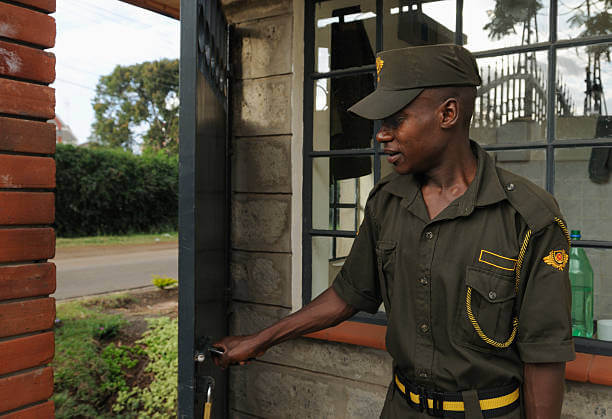
For that reason, security forces have increased their number in high-risk areas and are doing their best to ensure people’s safety. Further attacks are likely, but security forces operate along the border between Somalia and Garissa county and Boni Forest.
In many attacks, terrorists have used things such as knives, grenades, bombs, and weapons to carry out what they had in their minds. They even tried improvising different types of bombs and bombed cars as well.
Many places frequented by tourists could easily become targets to extremists. They could act in restaurants, bars, hotels, sporting events, supermarkets, and others. Not even churches and mosques are safe from attacks. Additionally, they could target people from airports, bus stations, or train stations too.
Apparently, a serious terrorist attack was about to happen in Nairobi, but the Kenyan police thankfully prevented it.
As mentioned, foreigners are not safe from terrorists either, as in 2013, for example, some British nationals were killed in an attack in Nairobi.
- How to avoid terrorism in Kenya?
First of all, you should avoid at all costs traveling to any of the high-risk areas. They are advised against for a reason, so listen to the authorities. Attacks can occur in other areas as well, but it’s better to take advice into consideration.
Make sure you don’t go to any crowded areas like sporting events or religious ones. Crowds are usually targeted, as there can be more victims. If you’re near mosques or churches, be particularly vigilant, because they could be unsafe as well.
Stay away from any suspicious people. In case of an attack, don’t do anything dangerous and listen carefully to the authorities. Your safety should be ensured at all costs. You went there to have fun in your trip, not lose your life.
Civil Unrest Risk in Kenya: MEDIUM
You may be wondering “Is Kenya safe to visit concerning protests?”. Well, political tensions are indeed high in this country. Protests are very possible all over the country, especially in the Western region.
There is a risk of sporadic violence, banditry, and tribal clashes. Apparently, several cases have occurred in areas of north and north-east. Whereas foreigners are not targets, they could become collateral victims.
The drought in 2017 triggered violence and arson onto wildlife areas and farms in Samburu and Sabrigo counties. Local herders are the ones carrying out these attacks. The government took measures to prevent this, but incidents are still possible. In 2017, a British national was killed on his Laikipia property.
- How to avoid bad situations?
Before heading to town, make sure you monitor the media. You should definitely be aware of your surroundings and make sure you’re secure. Additionally, avoid any area where such demonstrations take place. Some of these areas could be universities, electoral commission offices, government buildings, and political party headquarters.
In case of a protest, do everything you can to leave the area as soon as possible. If you are traveling to any of the areas at risk of attacks from herders, take measures. Check with your tour provider or accommodation and ask about the situation there
Risks for Women Traveling Alone in Kenya: LOW
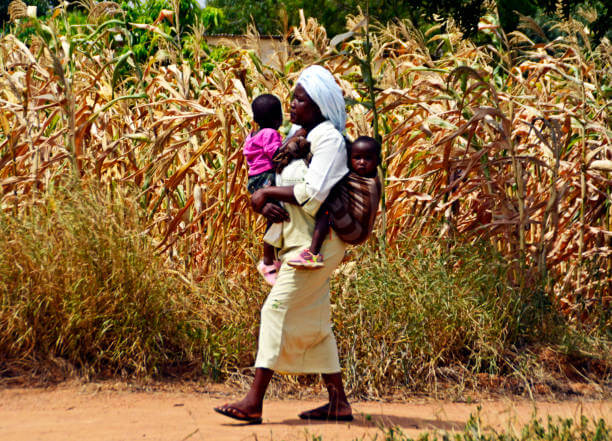
“Is Kenya safe for solo women travelers?” you may be wondering. You’d love to find out that it’s generally not dangerous to travel as a single lady. However, you shouldn’t take anything for granted.
Apparently, some women have reported the fact that they’ve been harassed by men who were trying their luck with them.
- How to avoid crime as a solo woman traveler in Kenya?
Although the risk is generally low, you may still draw attention to yourself without being aware of it. If you freshly arrive, people will notice you if you carry a lot of bags by yourself.
Moreover, you probably look different compared to Kenyan women, and whatever seems unusual draws people’s attention. This is why you should dress as normally as possible. Avoid walking alone in isolated places, especially if it’s night. If you go out, take a taxi, even if you are not alone.
Another thing you should avoid is drinking too much because you never know what could happen.
Rape Risk in Kenya: MEDIUM
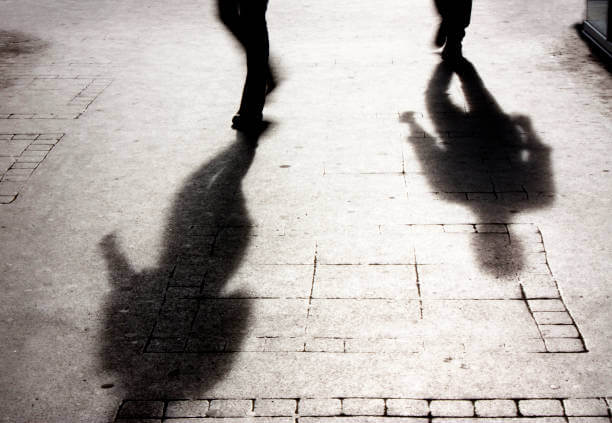
Even though there are few reports concerning this issue, we know for a fact that, back in 2015, Kenya had a rape rate of 1.9 cases per 100,000 population. After seemingly decreasing for several years in a row, this rate never dropped below 1.9 cases - therefore, we can assume that, even with a low number of cases, rape can still be seen as a risk for travelers that choose Kenya as their destination.
Moreover, it is worth mentioning that rape is taboo in Kenya, hence the low number of reports. While tourists may not be as affected by this issue, it is believed that locals live in silence and endure it. This also gives you more reasons to worry about getting raped, as locals may target you with no warning.
In short, do not expect to be risk-free of rape even if you are traveling to a country where only locals are targeted - a medium to high risk of rape should be treated accordingly, no matter you are a local or a tourist.
- How to avoid getting raped in Kenya?
In order to avoid getting raped - not only in Kenya but all over the world - it is important that you inform yourself of the specific country's local laws and customs. After all, you don't want to do something to upset or disrespect the locals. When referring to local customs, we also mean the outfit style, so to speak, that you should wear in different countries.
As a rule of thumb, you should try to blend in with the locals, look as normal as possible, and try to draw as little attention to yourself as possible. Moreover, you should not walk alone on the street, especially during the night - or during the day and if you are traveling through remote or dangerous/ suspicious areas.
Risks for People Traveling With Children in Kenya: LOW
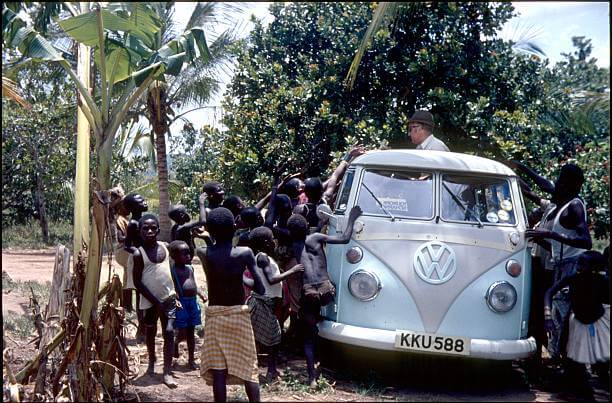
If you’re asking “Is Kenya safe to visit with children?”, you’re in for a surprise. Although it seems dangerous and probably makes you reconsider, Kenya is actually a friendly place when it comes to kids. Not only that but there are a lot of fun activities for kids as well.
Kids can interact with Kenyan children and learn about them while playing. Moreover, they will most likely adore watching wildlife and animals. Animals always make children curious.
The only things you should pay attention to are terrorist attacks and possible muggings. Children can easily get caught in them, so you need to know the risks you are exposing them to. It’s safe to take your children to this amazing place, but don’t take it for granted.
- How to avoid unwanted scenarios?
Other than what was already mentioned above, you should also make sure that your children are being looked after when traveling in a foreign country. We all know that they can easily get lost or, in some cases, even in trouble. This is why, if you think that you will not be able to always look for them, you should travel accompanied.
You should also pack a first-aid kit with whatever they may need, just in case you will be traveling to more remote areas and the access to either a hospital or pharmacy is limited. Naturally, it is also best to instruct them on how to behave and on what to do and don't after you reach your country of choice.
Natural Disaster Risks in Kenya: LOW
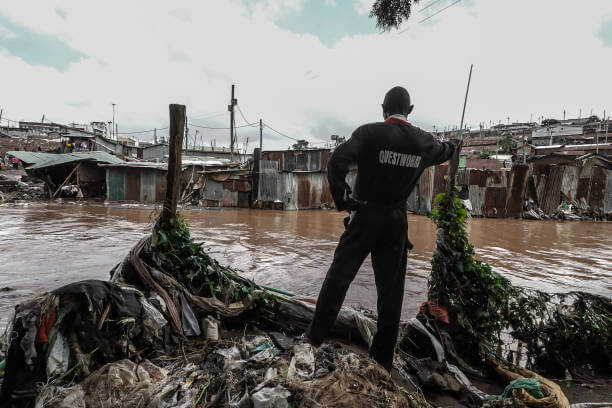
Natural disasters are not so frequent in Kenya. Still, they could occur when you least expect them.
The fault line that Kenya lies on has earthquakes from time to time. They are, however, not so big in intensity. The last significant one to affect Kenya took place in 2007, and it was of a magnitude of 5.2.
There is the risk of floods or droughts, though. Such disasters had impacts on the economic development and livelihood in Kenya. Sadly, drought and flood events become more frequent, occurring once in a number of years.
Make sure you inform yourself about the country’s situation before the plane takes off.
Risks for LGBT Travelers: HIGH
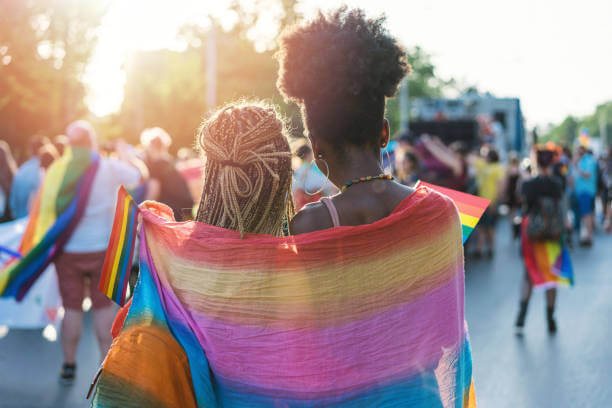
Unfortunately, Kenya is very strict when it comes to the LGBT community. If someone from the community wants to travel there, they should be careful.
What you should know is the fact that homosexuality is forbidden in Kenya, so public displays of affection should be avoided at all costs. The punishment for such behavior is up to 14 years in prison plus financial penalties.
Because of the government and religious groups who often publicly bash homosexuality, many Kenyan residents are homophobic. Although the LGBT community tries to change the mentality, there’s still a long way to go.
Therefore, until the time comes, people should be cautious and not display any public affection if they don’t want their life ruined by Kenyan laws.
Transportation Risks in Kenya: HIGH
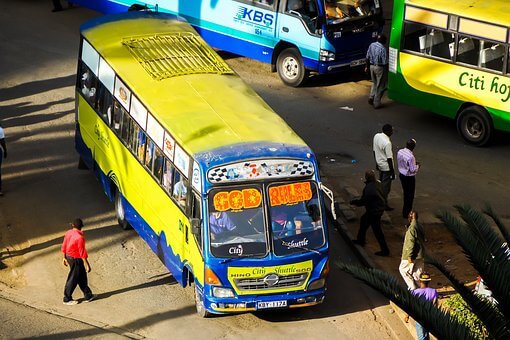
All but essential travel is to areas such as Garissa county, within 60km of the Kenya-Somali border, to Lamu county, to areas of Tana River county, and to within 15km of the coast from the Tana River down to the Galana River is advised against.
If you land on the Jomo Kenyatta Airport and plan on traveling to Nairobi city, you should avoid the Jogoo Road, as well as the old airport road, as they come with a higher risk of car-jacking. Mombasa road is recommended.
Lamu and Manda Islands should be accessed only by air.
Coast Province has seen a lot of violent incidents back in 2013 - most of these resulted in fatalities. Even though the targets were mainly Kenyan police, there was still a chance for foreigners to get caught in the crossfire. Therefore, it is recommended that you are cautious in the coast area, as well as in public places.
Reportedly, Northern and Eastern Kenya are the regions to usually experience banditry, cattle rustling, and ethnic clashes. Once again, even though foreigners are not usually targeted, it is still recommended that you remain extremely cautious while traveling through such areas.
When it comes to road and driving conditions, they are usually very poor and put you at risk. If you plan to drive outside of cities/ urban areas, it is strongly recommended to do so in convoy - do not travel during the night and always keep your windows down and doors closed.
If you plan on using certain transportation systems, such as long-distance buses, make sure that your safety is ensured by checking both the driver and the vehicle in terms of safety standards.
You should also not rely on cheap transportation means, such as the minibusses, as they are known for being poorly maintained, uninsured, and badly driven. Moreover, hijackers seem to like these minibusses, as there have been quite some reports telling of passengers - both locals and foreigners - being robbed while riding in a minibus.
Night-Clubs, Pubs, and Bar Risks in Kenya: MEDIUM
First of all, be aware of the fact that cases of locals and foreigners being drugged with the use of spiked drinks have been reported in the past. Therefore, it is strongly recommended that you do not accept any drinks from strangers and that you keep an eye on the bartender while he/ she is preparing your drink.
Even if a certain local you've just made friends with seems trustworthy, you should still not accept any drinks or food from them.
Reportedly, the rate of crime is higher in the slums of areas like the Old Town of Mombasa, Nairobi, and the Likoni Ferry - given this, you should avoid visiting any nightclub, pub, or bar located within these areas. Moreover, do your best to avoid any remote areas, as well as nightclubs and bars that are located too far away from your accommodation.
Make sure that you have a reputed taxi company that you can rely on for your transportation to and back from any nightclub/ pub that you may visit. You shouldn't be going alone in such locations, especially during the night. Take a minimum number of valuables and cash with you, approach a decent dress code, and do not interact with strangers.
These are the basic rules of staying safe while visiting a nightclub, pub, or bar. Depending on the city you are in and the exact location you want to visit, you may want to be either more cautious or feel safer. For example, if you visit the bar/nightclub that's located within your accommodation, then you have little to no risks of something bad happening to you.
Health Risks in Kenya
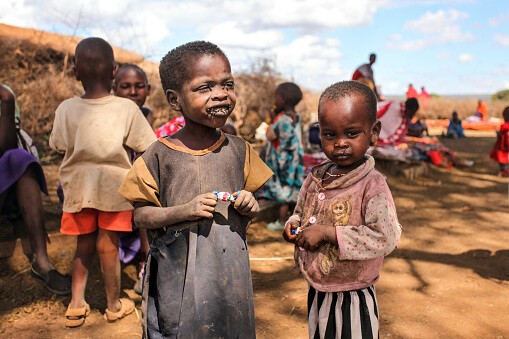
It is essential that you take precautions to avoid being bitten by certain insects while in Kenya - and, obviously, to inform yourself of the specific diseases that you might encounter while in this country. For example, malaria, cholera, dengue fever, as well as other infections carried by insects occur in Kenya.
On the 1st of August 2018, an Ebola outbreak was declared in a territory named Beni, in the North Kivu Province in the Democratic Republic of Congo. However, the Kenyan authorities were quick to respond and have instated additional screening measures at several border crossings and airports throughout Kenya.
Moving on, you should only rely on bottled or boiled water, as well as avoid having ice in your drinks. When choosing the next place to have dinner, make sure that the food is prepared by licensed vendors/ chefs.
Starting with the month of April 2019, there is a cluster of cholera cases at the Nairobi hospital. You should avoid traveling there or interacting with people and bugs, so to speak.
If you are in need of emergency and immediate medical treatment, you should still consider relying on the Nairobi Hospital if any other emergency facilities that could treat you are too far away and cannot be reached in time.
Travel only with proper travel health insurance and always have enough funds with you, in order to cover the costs of any treatment or medicine that you may have to pay for.
List of Vaccines You Need When Visiting Kenya
The first thing you should consider before going anywhere is travel insurance that can help you with the costs of certain medical problems.
Still, going to certain countries requires vaccinations. Check with your doctor a few weeks before your trip so he can tell you whether you need vaccines or not.
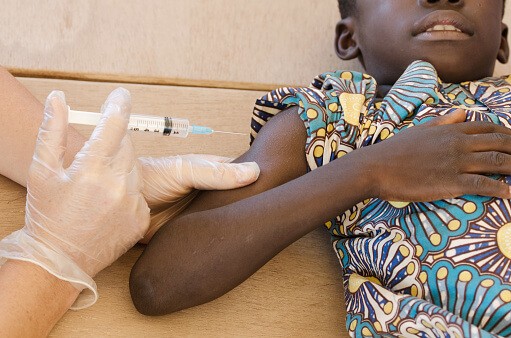
Apparently, there is a moderate risk of contracting malaria in the country. Therefore, consult a travel medicine specialist before your vacation. He should be able to determine the best antimalarial.
Other present things in the country are chikungunya and dengue. Bring some mosquito repellent as well before going to Kenya. They can be a real nuisance and really dangerous.
Here are some vaccines you may need before going to Kenya:
- Yellow Fever
- Influenza
- Hepatitis A
- Hepatitis B
- Typhoid
- Meningitis
- Rabies
- Cholera
Most Dangerous Areas in Kenya
- Garissa County
- Within 60km of the Kenya-Somali Border
- Tana River County areas that are north of the Tana river itself
- Lamu County
Concluding Remarks: Is Kenya Safe to Visit?
To sum up: How safe is Kenya for tourists? Are there things to consider before going to this country? Kenya can be an amazing experience with no incidents if you know how to take precautions. It’s not the safest country, but it’s not something to be avoided like plague.
Terrorism can, of course, be a huge threat, even to foreigners who have nothing to do with Africa. Public protests and street muggings can occur at any time, especially in big cities.
Hopefully, this Kenya safety guide provided you with enough information about Kenya’s safety. If you follow the tips, you will reduce the risk of being an attack victim.


